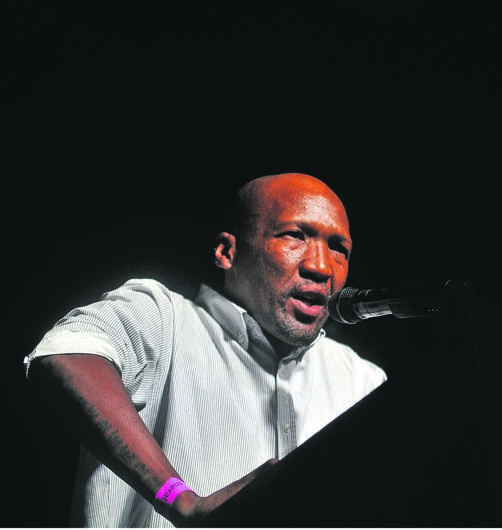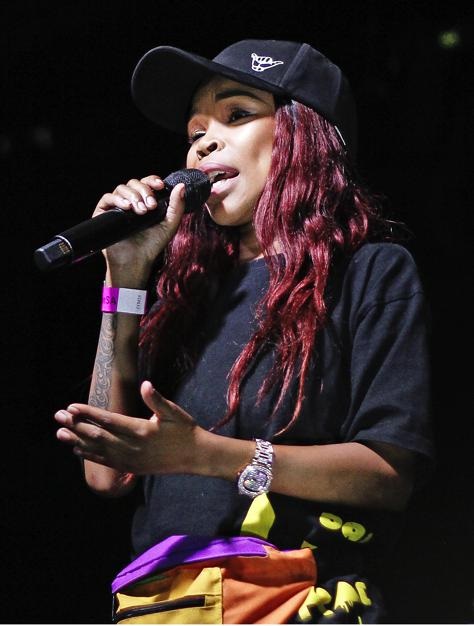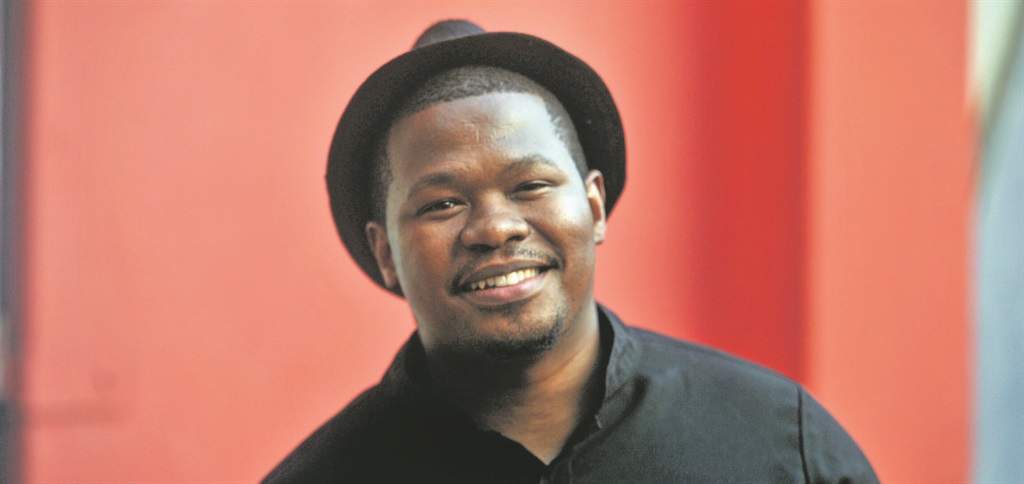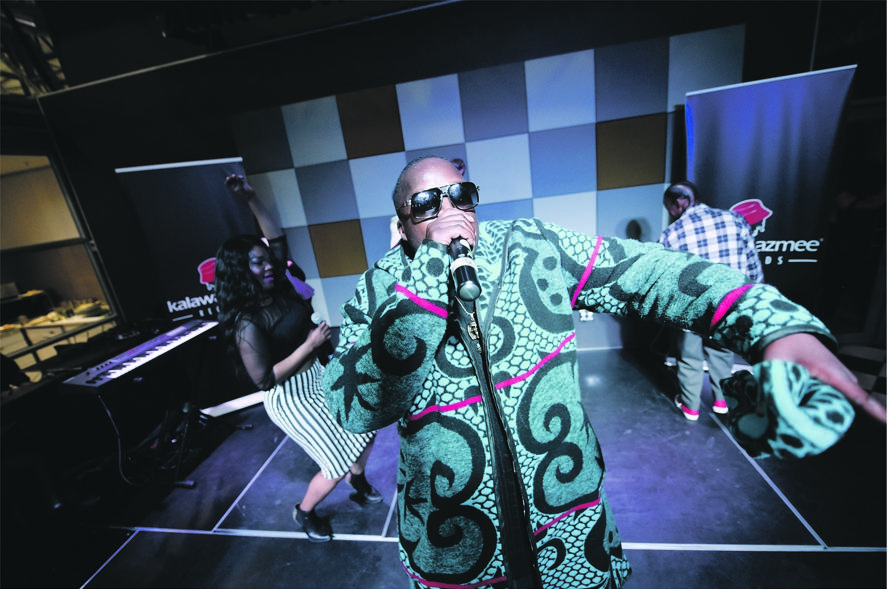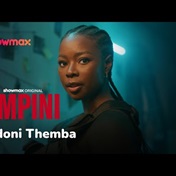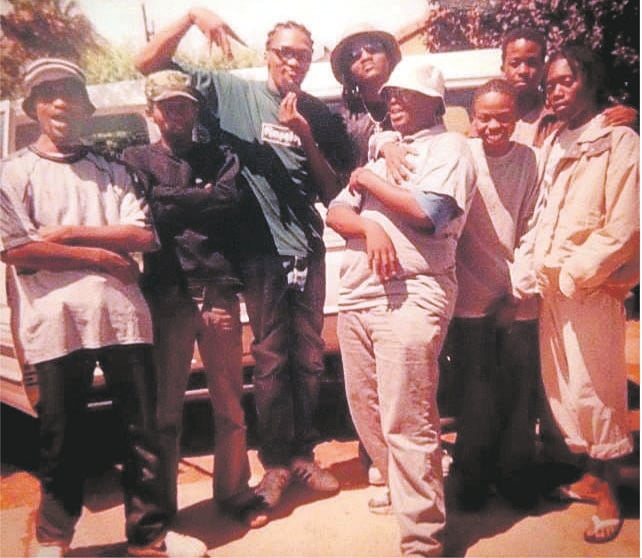
Hip Hop Pantsula captivated the hearts and minds of SA’s youth with his unique approach to rap, which gave rise to motswako – an entirely new branch of local hip-hop – making Tswana ‘fashionabule’. Phumlani S Langa speaks to the artists whose way was paved by HHP, as a few of the friends who loved the man the streets affectionately called Jabba.
HHP 1980-2018
I remember seeing a video of a funky looking brother walking around his block talking about taking me to the level of the Tswaka.
The video looks dusty and somewhat aged now compared with the videos we are more accustomed to, but the music is timeless.
His style is undeniable and his cool was rooted in his heritage and love for his language.
This brother kicked a scheme about making Tswana “fashionabule”. I wonder if he knew, when he first fell in love with rap, that he would be regarded as the supreme architect of the motswako sound. He breathed new life into the local music scene, and defined the style of a region – Mahikeng in North West.
South African hip-hop has always struggled with its identity. Homies from the north side of Johannesburg rap like the Migos in Atlanta. At one stage, the J-Sec was regarded as the region where rappers placed particular emphasis on lyricism.
Given the general dumbing down of the game, it is safe to say that’s no longer the case. We have rappers in Durban who sound nothing like anything to do with Durban. Don’t get it twisted, it takes more than writing in your mother tongue – a style is needed.
Not only did Jabba have a style that could not be duplicated, he was an artist who studied the game and was able to display his keen ear with beats that had the funkiest samples in town. For those who are unaware, the funk is what we enjoyed before things got wavy.
He was also woke before that was cool, like Boom Shaka and Bongo in the beginning. He could release a song like the politically charged Harambe, where he doesn’t mention a single chain or Mercedes-Benz, but instead speaks about fallen struggle heroes and the pain of bearing black skin. The song was a resounding success on the charts.
Two months after the death of rapper Pro, Jabba has also left us. His memorial service at The Bassline in Newtown, Joburg, was packed with fans, friends and family, who swayed and bopped in honour of this MC maestro.
Prof Sobukwe and the Motswakoriginator
Prof Sobukwe was one of the individuals at the epicentre of motswako – there from the start. He hails from Mahikeng and he and Jabba connected through the beauty of rap music. The tall, bespectacled gentleman spoke with #Trending about the come-up of this titan of street culture and the moments they shared away from the limelight.
“We all came up through Mmabana Arts Culture & Sports Foundation, where I learnt to draw and paint, which eventually led me to the music. The music thing was built on a brotherhood; a camaraderie more than a competition. When we came to Joburg, we quickly realised that this was the concrete jungle and we had to band together.”
Is this the reason HHP gave so many artists a leg up?
“I wanted to do the same,” replies the Prof. “I mean, I kept telling Khuli [Chana] and them that they were next. I wasn’t able to help as I was locked into a distribution deal with Universal, but HHP, he just carried the world on his broad shoulders.”
For Prof, the passing of Jabba has darkened his aura with emotion, sadness and a quiet anger. He speaks with a distinct disdain for the shallow culture of the City of Gold, and of all the tributes and admiration for Jabba happening only after his death. The planet has a culture of obsessing over the flavour of the month, casually neglecting the legends who made them possible.
And Jabba’s biggest contribution? The older head thinks, then grunts: “It isn’t just hip-hop, it’s music, man. He was selfless and his energy when he was creating was crazy. I went to see him once and we were chilling, having some beers, and he played me this beat and we just started working.”
He pauses a moment in recollection. “I was working in Cresta back then and one day after work, I met him at a studio and Thasman and Max-Hoba came through. We worked till 7am, at which point I had to catch a taxi and go to work again. I didn’t even bath, bra. He’s that type of guy – when he starts something he wants to strike while the iron is hot. When the creative juices flow, you have to put everything else aside as they really come at you.”
I wondered if HHP suffered a creative drain, especially towards the end.
Prof explains: “He was constantly working and I’m sure he had a lot of material, but he was also inclined to make beats – he had his own studio and other producers seemed to gravitate towards him.”
So, no, I guess.
Fifi Cooper, first lady of motswako
The former Ambitiouz Entertainment signee spoke at the memorial about Jabba, who was like a big brother to her – as he was to so many.
“I used to be a singer and, coming from Maftown, Jabba played a big part in helping me realise that I could go from the kasi to the big city. He had a huge impact on my deciding to go into motswako and become the first lady,” she says.
“He was the kind of guy who would give you advice and put you on – he wasn’t like these artists who just want everything to themselves. He was open and loving. Whenever he walked into a room, it would light up because of his energy. I will respect and remember that about him. He gave me the name first lady of motswako, and I hope he’s looking down and he’s proud.
“At our last studio session, we recorded Ale Duma E with Lection, and working with him was remarkable. There were moments where he made you feel less of an artist because sometimes he wouldn’t even write. His art came from the heart.”
Cooper ends with a call to up-and-coming artists: “Learn from this. Jabba paved the way for so many artists and perhaps not many of them were around when he needed them. Check the people you’re around and make sure your circle is tight so you can open up.”
Lection and the prospect of Jabba X
The last artist Jabba worked with is a spitter from Maftown who’s new to the limelight. Lection explains what Jabba’s 10th album will be about and how the rapper had planned to rebrand himself as Jabba X.
The down-to-earth motswako head says: “His energy in studio was crazy. He can give you energy as well. He’d call me at 4am. I’m tired, I’m in my slippers and he would get the energy up in the studio, but he wouldn’t put me on the spot where I’d feel like I can’t deliver a verse or a bar.
“He was a humanitarian. He was caring, but he also called a spade a spade. In this industry, at times, people will be friendly until your back is turned. He’d tell you straight: ‘You’re wack.’ And then he would explain to you why you’re wack.”
Lection says the flavour on Jabba’s final offering was fresh and he was also working with a few producers from across the continent who hadn’t really received much attention elsewhere.
“He was planning this Jabba X thing, which has nothing to do with Malcom X – X is the number 10 in Roman numerals and this was his 10th project. He wanted to be unapologetically Jabba and he considered this album to be his last one.”
The irony stings your eyes.
HHP explored sounds on this that included the likes of producers from Malawi. Lection says: “I’m not sure when it will be out and the issue is the title. It is mastered and it was called ...” He stops, shakes his head for a moment.
“Eish, Jabba is complicated. He wanted to do a double disc with one called Drum and the other The Legacy. People are going to love it. I mean, he tried to accommodate trap, but in his own way – not this regular stuff.”
Aus Tebogo, queen of the rhythm section
The soft-spoken bass player is anything but soft on stage. She played in Jabba’s band for most of his career – a dozen years or so.
She chuckles as she explains how they came to work together: “We met in Mahikeng. He had just started to gain notoriety and was looking for a band. I did not know him or the motswako movement; I was just playing music and had started an all-female band.
“Jabba loved the sound of that and we met up to see if this could work. He started rapping and, after that, he said he’d give us a call.”
She bursts into laughter and adds: “He disappeared on us for a year.”
Aus Tebogo next runs into HHP at an event in the North West. She tries to avoid him as she’s a bit upset. Jabba is about to drop his smash hit Jabba, and he needs a band to carry that sample because what would a sample be without Jabba? I still get hyped when I hear Jabba salute his producer on Jabba with the line: “Thasman on a Tavares tip, baby.” This as the remodelled classic, Heaven, gives way to the master of motswako.
Aus Tebogo had no idea what was to happen next: “Little did I know I was embarking on a work relationship, but Jabba was ... yeah ...”
Her voice cracks a little as she tries to explain how Jabba became more than a work acquaintance, but a friend.
Her fondest recollection of him was at the Cape Town Jazz Festival: “It was his first in 2007 and we had just come back from Germany and the hype was good. He was the first hip-hop act to be booked at this festival. We were so nervous – why did they want us? Hip-hop at a jazz fest? We rehearsed at night for two weeks. He was blowing up. I mean, people would want to come to his rehearsals and we wanted to avoid that.”
On the night of the show, things took a turn.
“In the middle of the set, we were stopped as there was a stampede. The police were trying to control the crowd and it was packed at the baselines stage. Everyone was flooding the area to see Jabba with a band. We had to stop and let the other acts finish their sets, so we were moved to the outside stage. We couldn’t believe it.”
Through it all, he was humble, she says.
“He appreciated people. He would talk to the people and take pictures. The word of God grounded him.”
The words flow out of her now.
“His biggest contribution and legacy was to show people not to be narrow-minded. Music is not one sound – as a musician, you deal with emotions. You can’t channel one genre, you have to be accommodating, and art is these different things being put into one basket to create something new. I hope the hip-hop fraternity will continue his legacy of open-mindedness.”
RIP Bosso
We were all blessed to have had HHP’s music on the airwaves, on our screens, in our lives. The man was a worldly artist. I’m sure you remember he had a song with Nas that he paid quite a bit for. He won a competition that saw singer Amerie appear in his video for the banger Music and Lights. He was to motswako what Michael Jordan was to the NBA. It will never be the same again, but, fortunately for us, when a great artist leaves, they’re never truly gone.
We are no longer wondering Bosso ke mang? We know. Peace, king




 Publications
Publications
 Partners
Partners




